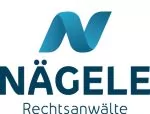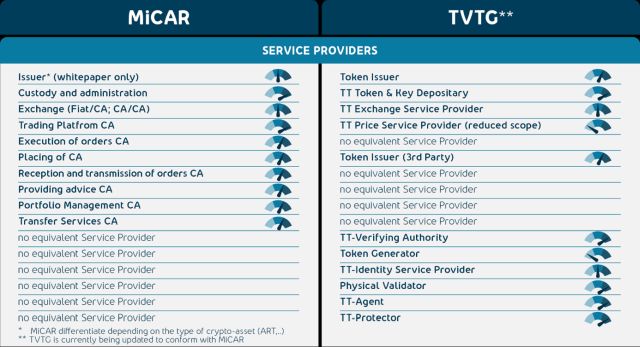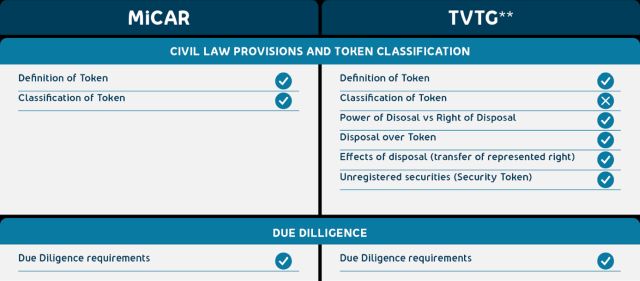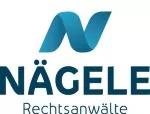
Liechtenstein is a particularly crypto-friendly jurisdiction in Europe: As early as 2020, Liechtenstein implemented the TVTG aka “Blockchain Law”, a comprehensive…
Liechtenstein
Technology
To print this article, all you need is to be registered or login on Mondaq.com.
Liechtenstein is a particularly crypto-friendly jurisdiction in
Europe: As early as 2020, Liechtenstein implemented the TVTG aka
“Blockchain Law”, a comprehensive regulation of the token
economy, thus creating legal certainty. The country in the heart of
Europe is home to a vibrant crypto scene: by now, more than 28
companies have registered for nearly 60 service provider roles,
including 4 larger exchanges. MiCAR provides for transitional
provisions and facilitations for service providers registered under
national laws. Exchanges that are registered in Liechtenstein under
the Blockchain Law by the end of 2024 can benefit from this.
The MiCAR regulation is intended to end the existing patchwork
and ensure maximum harmonization in the crypto sector: As an EU
regulation, MiCAR is binding for all member states and applies
directly in all EU member states for all crypto assets that do not
fall within the scope of the existing EU financial regulations. The
central goal of this regulation is to create legal certainty
throughout Europe. The regulation is also intended to control the
financial risk posed by crypto assets (e.g., risk to market
integrity and financial stability). Innovation and further
development should also be promoted. MiCAR will have a significant
impact on the European crypto sector as a whole and beyond.
In order to maintain its pioneering role in the crypto sector,
the government of Liechtenstein has submitted a proposal for an
early amendment to the TVTG in preparation for MiCAR: The goal is
to integrate certain MiCAR-CASP service providers into the TVTG
even before it applies in the EU, and to create legal certainty
during the transition from the Blockchain Law to MiCAR. The
introduction of a new service provider role for lending and staking
is also planned. Thus, Liechtenstein offers an added value of legal
certainty and more than just MiCAR.
When does MiCAR apply in Liechtenstein?
MiCAR entered into force within the EU on 29 June 2023.The MiCAR
rules addressed to market participants will gradually take legal
effect: From June 2024, the provisions on asset-referenced tokens
and e-money tokens will be applied in the EU, all other provisions
from December 2024.
Liechtenstein is part of the EEA, not part of the EU, so MiCAR
is not directly applicable in Liechtenstein. With the publication
of the regulation in the Official Journal of the EU, the process to
incorporate it into the EEA Agreement begins. Liechtenstein will
push for the adoption of MiCAR into the EEA Agreement and aims for
full applicability at the same time as in the EU, 18 months after
announcement in the Official Journal. This would have the
consequence that all regulations of MiCAR – especially with regard
to issuers and CASPs – would be implemented at the same time as in
the EU.


Comparison of TVTG service provider roles with CASP
What do the transitional provisions/simplified procedure
according regulate?
MiCAR contains transitional provisions for issuers of
crypto-assets and providers of crypto-asset services (CASP).
Transitional provisions for
- Issuers of crypto-assets that are admitted to a trading
platform before MiCAR comes into force: - Marketing communications must comply with MiCAR
- The operator of the trading platform has to ensure within 36
months after the entry into force of MiCAR that a whitepaper is
created, notified, and published in accordance with MiCAR - Those providing TT services under national law may continue to
provide their services - For a maximum of 18 months after MiCAR comes into force,
or - Until they have received a permit under Art. 63 MiCAR,
whichever comes first. - Member states can decide not to offer this option of a
transitional arrangement or to reduce the duration if they believe
their national legal framework is less strict than the MiCAR
regulation. - Issuers of asset-referenced tokens (ART): May continue to offer
these publicly until they have received a permit under Art. 21
MiCAR, provided they have applied within one month after it comes
into force. - Banks that publicly offer asset-referenced tokens (ART) may
continue to do so, provided they have applied for a permit no later
than 1 month after the entry into force of MiCAR.
- Simplified procedure for CASP: Member states can provide a
simplified procedure for a permit as a CASP: - Only for CASPs that have a national permit to provide CASP
services at the time of MiCAR coming into effect - For applications up to 18 months after MiCAR comes into
effect - The member state must ensure that the requirements of MiCAR are
met
What advantages does Liechtenstein offer?
In addition to regulatory provisions, the Blockchain Law also
contains civil law provisions, particularly with regard to tokens,
the representation of rights by tokens, and their transfer: In
Liechtenstein, classic property rights, even on physically
indivisible value objects and fungible items, can be made digitally
divisible and transferable into any number of token units through
tokenization. This creates legal certainty and new opportunities
for commercialization and liquidity creation.
In addition to its EEA access, Liechtenstein also has open
access to the Swiss market due to its integration into the Swiss
Franc currency area and a customs union. Over the past few years, a
remarkable blockchain ecosystem has developed in Liechtenstein. The
government and authorities of Liechtenstein are open to innovation
and new technologies. Together, they are in constant dialogue with
market participants. In order to promote the competitiveness and
future viability of the financial center, the government of the
principality has established the Financial Market Innovation and
Digitalization Unit: It supports financial service providers or
finance-related companies in their private innovation process. The
Liechtenstein Financial Market Authority has also opened itself to
the token economy by creating the “Regulatory
Laboratory”.
Here’s how you should act now
We recommend checking now how the MiCAR regulation affects your
business model. Do you need a white paper or does it make sense for
you to register your company in Liechtenstein now and thus be
MiCAR-ready? Are new adjustments required in the area of
compliance? We are happy to assist you in analyzing and
implementing what makes sense in your case.
The content of this article is intended to provide a general
guide to the subject matter. Specialist advice should be sought
about your specific circumstances.







